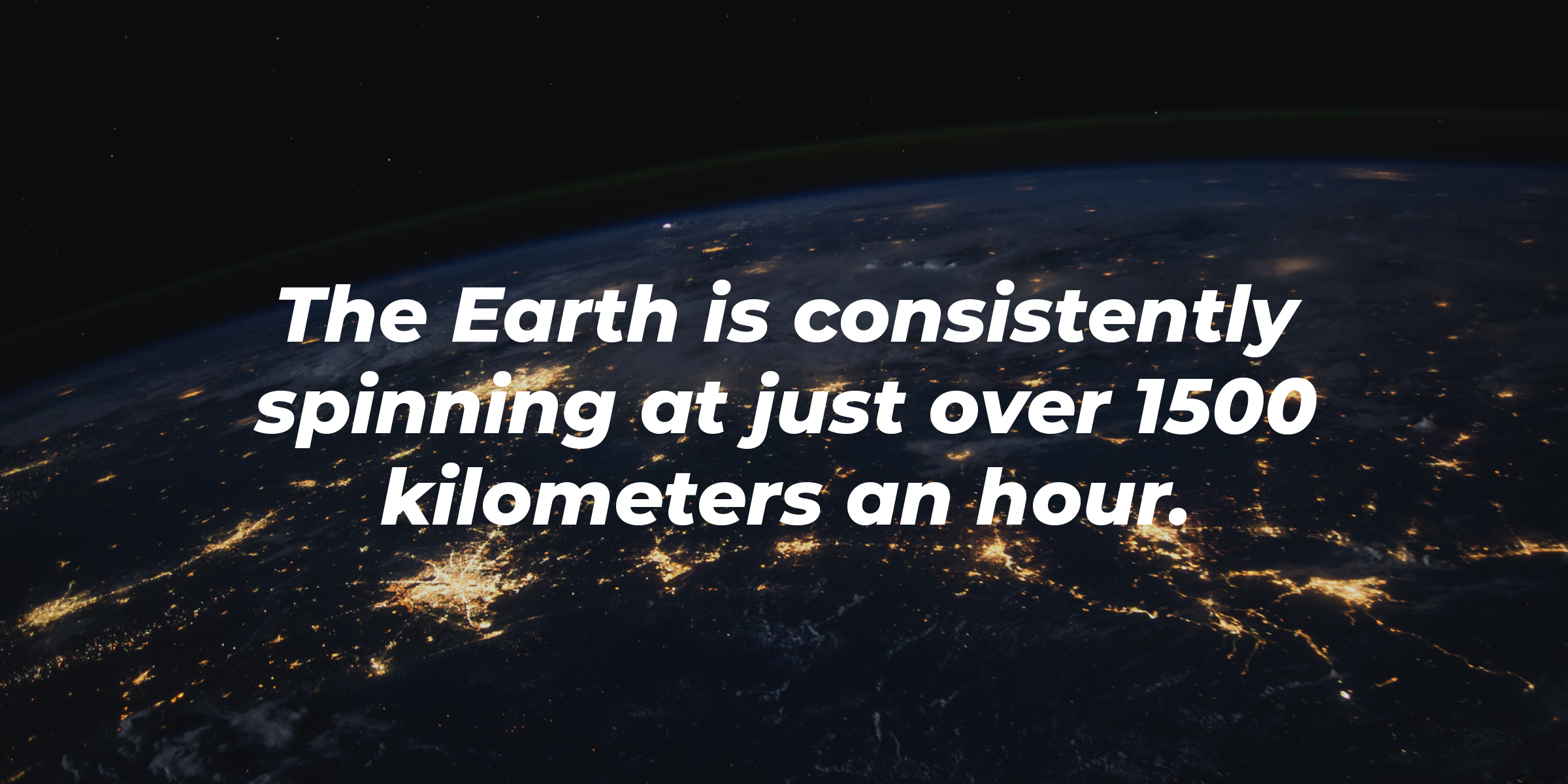
21 Facts about Earth to Leave You in Awe of Our Pale Blue Dot
Every day, we go about our lives on this planet, forgetting that we are floating on a blue ball in space that's rotating around a massive ball of fire. Let's learn more about this crazy planet we call home by reading the 21 facts below.
We have all seen the photos and clips from outer space and the moon. A gorgeous ball of blue and green that can make us feel so insignificant and tiny, but in the most beautiful way.
However, this planet we call home is filled with mysteries, surprises, and a history of which we know so little. Explore just a slice of this vastness by reading the 21 facts below.
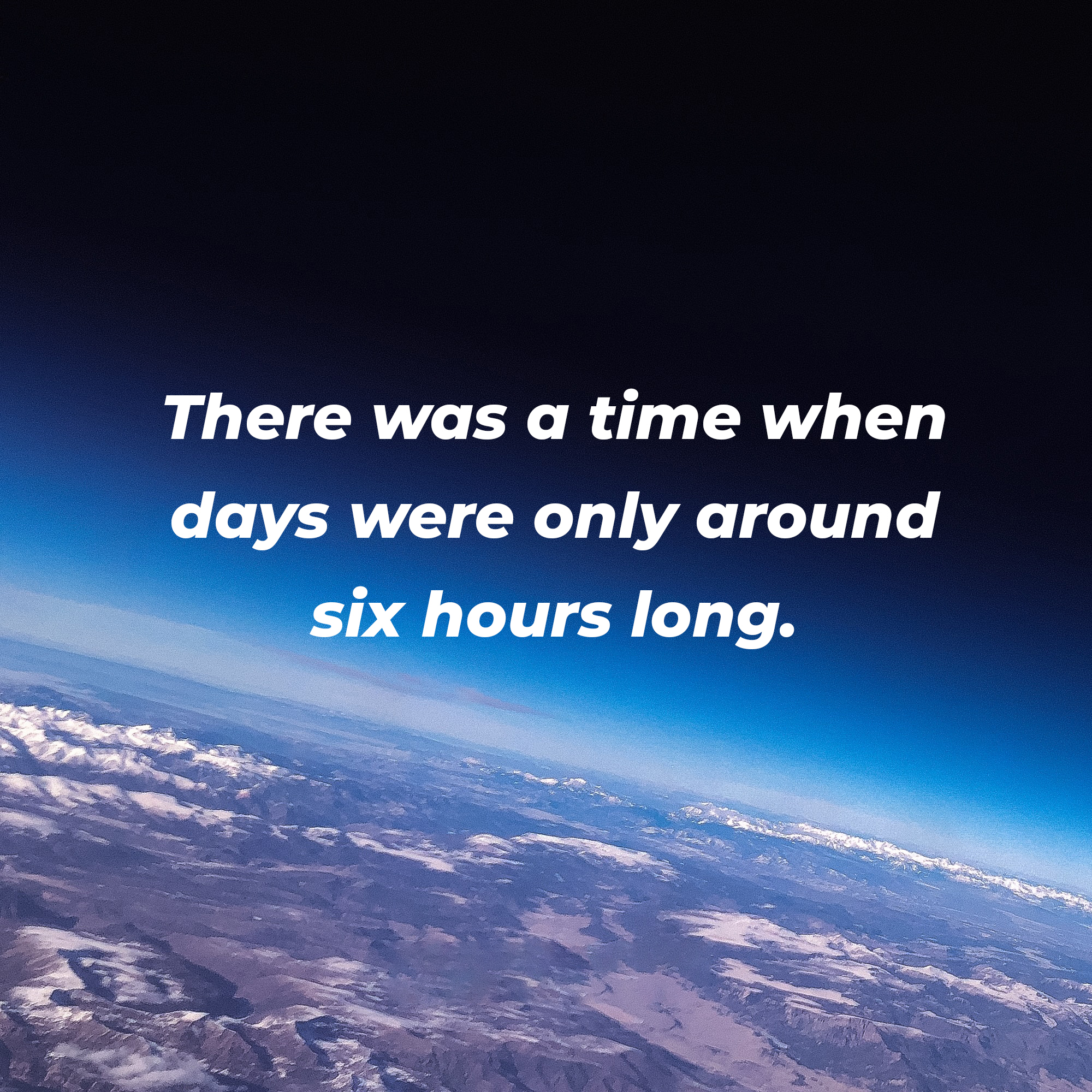
A picture of the Earth from outer space with the text overlay, “There was a time when days were only around six hours long.” | Image: Unsplash
1. There Are Claims That the Earth Has More than One Moon
While they don't orbit the Earth in irregular patterns for more than nine months, some scientists think that our planet sometimes draws in asteroids that pass by.
2. Our Planet Is Enveloped in Space Dust
Every day, cosmic dust falls on our planet from comets when they pass by the Sun, and their ice turns into interplanetary dust.
3. We Have Not Found Life on Any Other Planet... So Far
Whether aliens exist, they have yet to make themselves known. Experts have been searching throughout our solar system and still can't find a hint of life.
4. Water Covers the Majority of the Earth’s Surface
Just under three-quarters of the Earth's surface is covered by water, with the ocean making up most of it.
5. The Days Are Getting Longer
Billions of years ago, days were only around six hours long. It continued to increase throughout history, leaving us with the 24-hour day we have now.
However, it continues to increase every one hundred years.
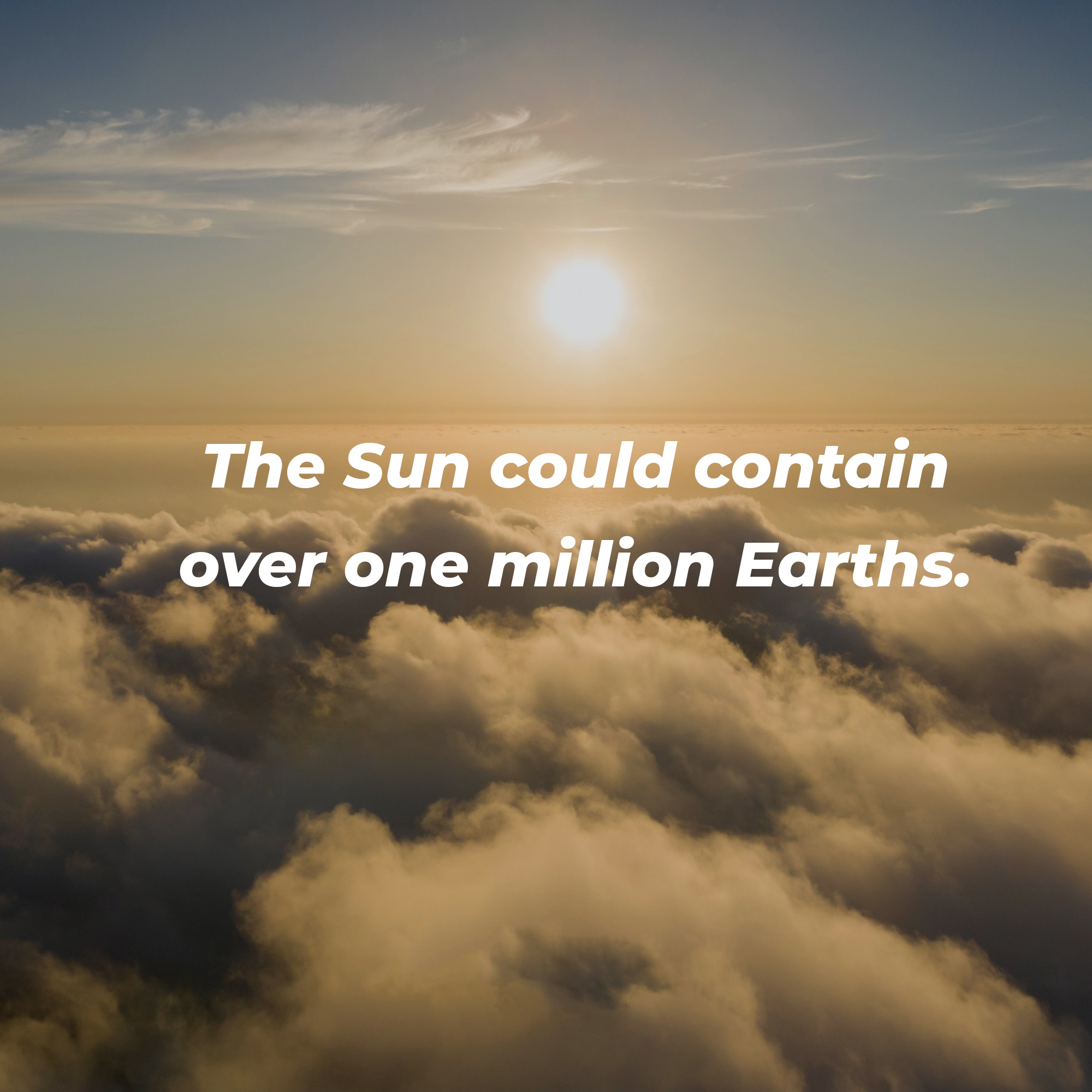
A picture of the sun above the clouds with the text overlay, “The Sun could contain over one million Earths.” | Image: Unsplash
6. Earth Wasn’t Always the Shiny Blue Planet We Know and Love Today
We associate Earth with green and blue, but at one stage, it was purple.
Retinal, it is claimed, could have been the reason for this, acting as the molecule, at that stage, to take in the rays of the Sun. The molecule reflects purple light, explaining the different hues.
7. The Earth Is Smaller than We Think
Comparatively to our Sun, the Earth is barely a speck. To put it in perspective, the Sun could contain over one million Earths.
8. The Earth Isn’t Round
While the Earth is not flat, it is not perfectly round either. By the equator, the Earth swells at a tiny 0.3 percent more than its general size.
9. Gravity Isn’t Consistent throughout the Whole Planet
As stated, the Earth isn't wholly round, which leads to jagged mass changes across the planet's surface. This change in mass leads to a change in gravity.
10. The continents weren't always as separated as they are now
Due to tectonic shifts, Rodinia, as one massive continent, came to be millions of years ago. Pangea was another supercontinent that existed millions of years ago.
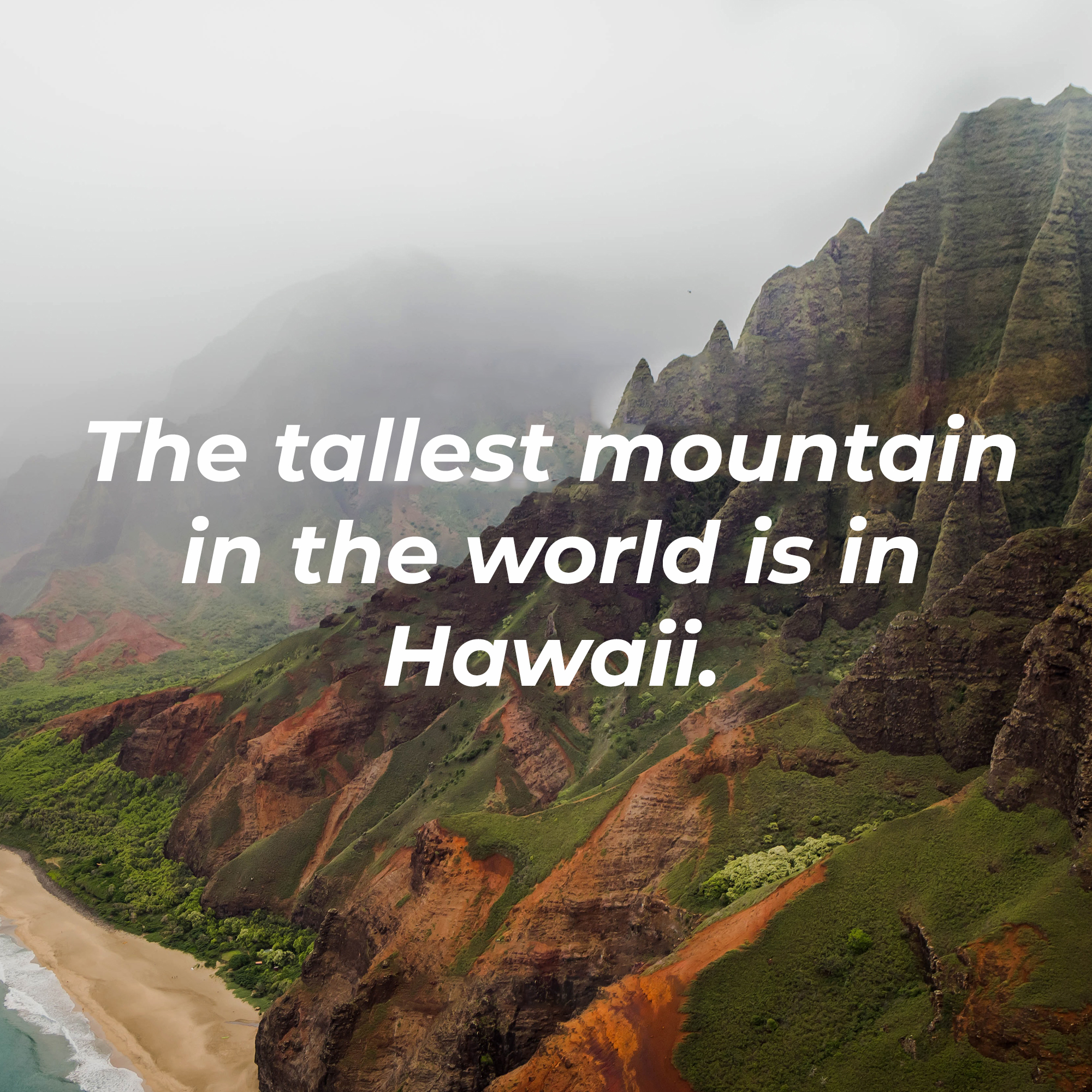
Mountains by the sea with the text overlay “The largest living organism is a honey fungus that extends beyond 2 miles.” | Image: Unsplash
11. Mount Everest Is Not the Tallest Mountain on the Globe
The Mauna Kea Volcano, located in Hawaii, is, in fact, the tallest mountain in the world, from base to peak. However, Mount Everest remains the highest in terms of altitude.
12. Our Sun Will Die and Take Us with It
This reality sounds scarier than it is, as it will not occur for billions of years. However, our Sun will eventually become a red giant and vaporize the planet.
13. Fungus Makes up the Largest Living Organism
In the Blue Mountains of Oregon, honey fungus can be found that is over 2 miles long. To the naked eye, there are only mushrooms, but underneath, a massive organism is at play.
14. Other Planets Like Earth Do Exist
While we haven't found any other life forms, the fact that Earth-like planets even exist — Keplar-22B, Kepler-186F and Keplar-452B, to name a few — is astounding.
15. The Earth Is Rotating at an Incomprehensible Speed
We can't feel it because of our proximity to gravity, but the Earth is consistently spinning at just over 1500 kilometers an hour.
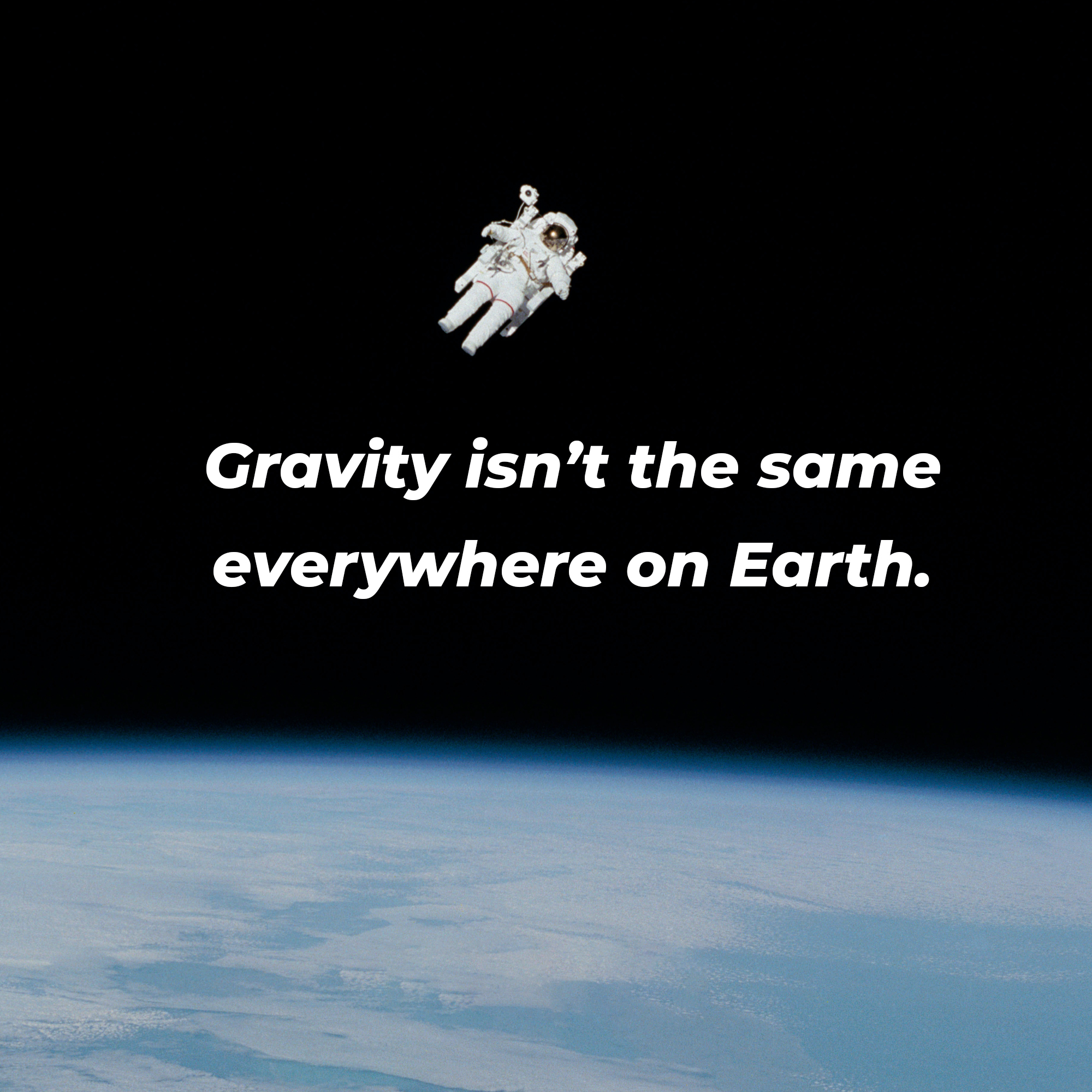
An astronaut floating in space over the earth with the text overlay, “The Earth is consistently spinning at just over 1500 kilometers an hour.” | Image: Unsplash
16. How or Who Named the Earth Remains a Mystery
There is no recorded history or reference as to who named the Earth and why they did so.
17. The Viruses on Earth Outnumber the Stars
There are so many viruses on our planet that they outnumber all the stars in the universe. For every star, Katherine J. Wu wrote for "National Geographic," there are approximately 100 million different viruses.
18. Silicon, Oxygen, and Iron Are the Main Compounds That Make up the Earth
The Earth generally comprises about 16 percent silicon, 30 percent iron, and 30 percent oxygen.
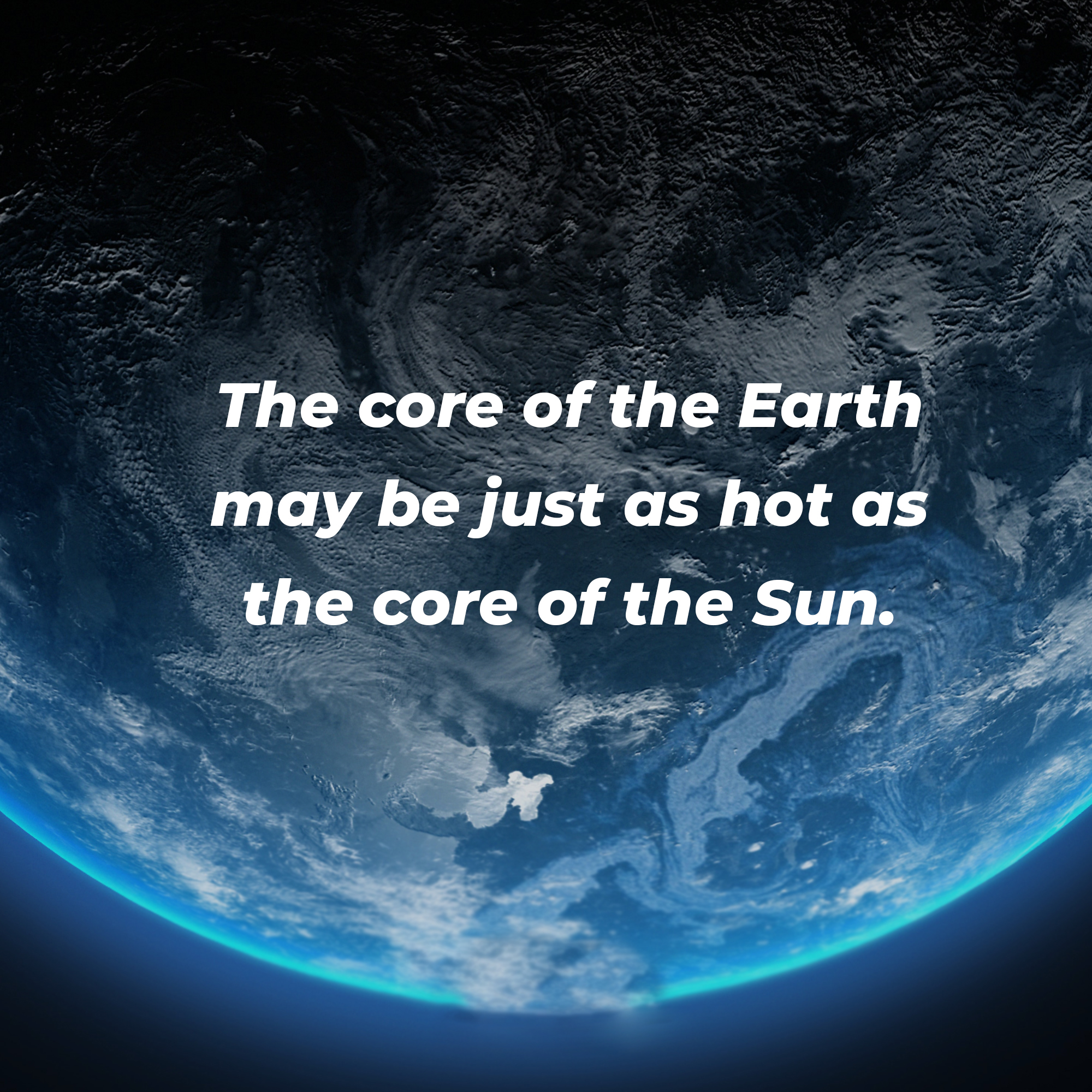
A picture of the earth from space with the text overlay, “The core of the Earth may be just as hot as the core of the sun.” | Image: Unsplash
19. There’s a Massive Amount of Gold in Our Oceans
It is estimated that around 20 million tons of gold are in the water itself. That being said, there is no way of extracting it.
20. The Earth Is Older than We Realize
The National Center for Science Education believes the Earth is an estimated 4.54 billion years old.
21. The Sun and the Earth’s Core Might Be as Hot as One Another
Paul Asimow, a Caltech geologist, has claimed, with reasonable doubt, the core of the Earth may be just as hot as the Sun's surface.
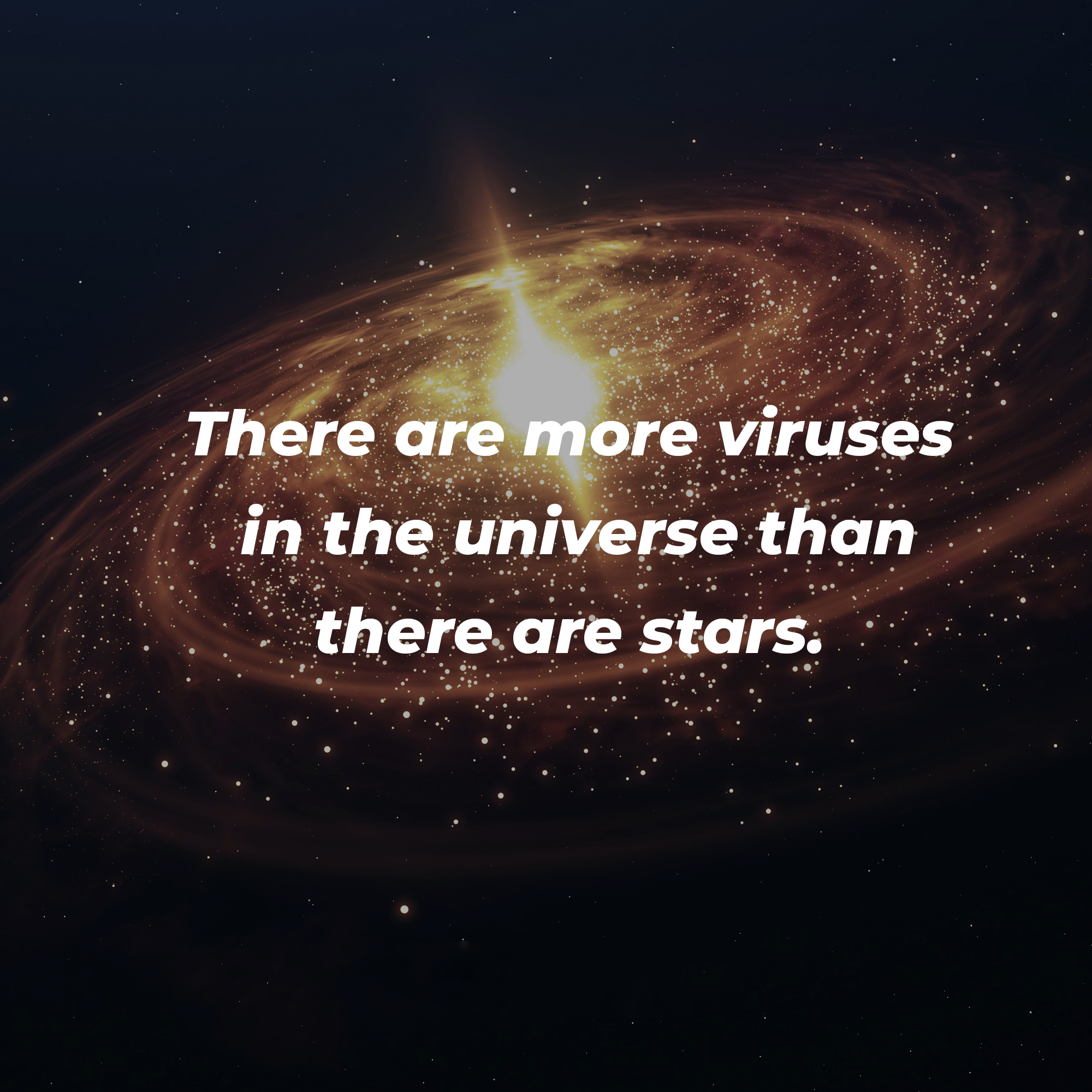
A picture of a galaxy with the text overlay, “There are more viruses in the universe than stars” | Image: Unsplash
As fascinating as our planet is, some still choose not to respect it, to appreciate our beautiful greenery, the air we breathe, or the animals that walk on this planet beside us. Hopefully, we can come together and make a difference to save our home.
